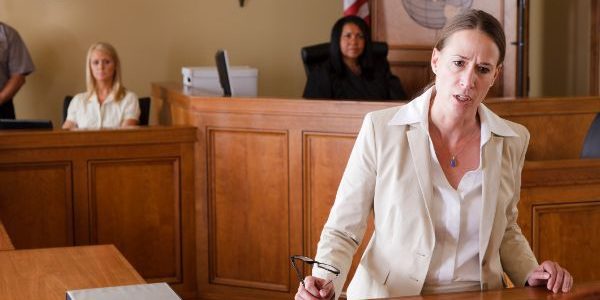During a lawsuit, a deposition is a chance for the lawyers of each side to ask parties questions under oath to learn more about what they think and what they’re likely to say at trial. Depositions happen shortly after written discovery, allowing time for the attorneys to review submitted materials and are generally conducted in a conference room with the lawyers for both sides present. Depositions of expert witnesses also occur after they have submitted reports on their findings if the expert is expected to testify at trial.
The lawyer representing the person being asked questions has limited authority to object to the questions being asked and the way their client is being treaded during the process. There’s also a court reporter in the room who is recording everything said and will produce a transcript of the event that can be used at trial.
Removing the Element of Surprise
While a surprise testimony makes for wonderful TV drama, it makes the actual litigation process very difficult. Often, someone’s testimony will require additional record requests or other work to substantiate that testimony. The goal of discovery and depositions is to avoid surprises at trial, ensuring both sides know what is likely to be said in response to any given question.
Conducting depositions often, but not always, leads to a case settling as the attorneys and both parties come to a clear understanding of what each side claims, knows, and is likely to say in court. While not all cases are that clear-cut, and attorneys often ask questions to confuse their opposing party on their final strategy at trial, depositions can nonetheless be a useful tool in resolving an issue before taking it to a jury.
Using Deposition Testimony at Trial
Because a deposition is taken under oath and recorded by a court reporter, answers given at deposition can be used during trial. Deposition answers are often used to call out inconsistencies of answers at trial. They can even serve as evidence if someone who was deposed is unable to attend the trial. Their main purpose, though, is to avoid surprise answers at trial, meaning both lawyers have a good idea of the content of someone’s answer when they’re on the witness stand and how they will present to the jury as a witness.
It helps to talk to the team from Dunn Law Firm when considering your particular situation. They can give you an idea of the strengths and weaknesses of your case and the process of working towards either a negotiated settlement or a full trial. To learn more about our law firm and the type of business representation we handle, reach out to the Dunn Law Firm by calling (435) 628-5405 and set up a free consultation today.







